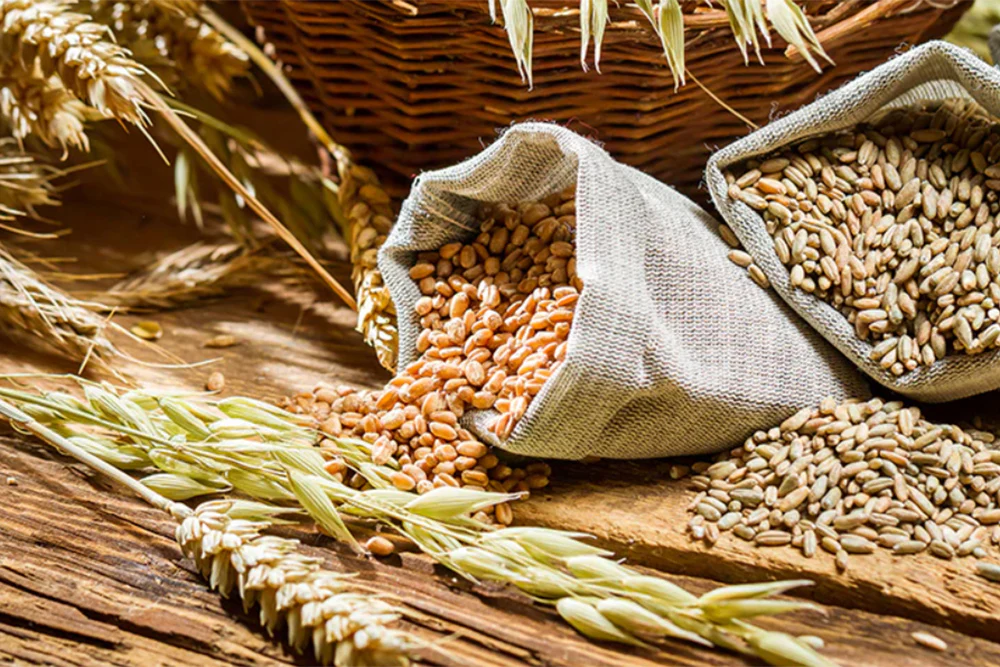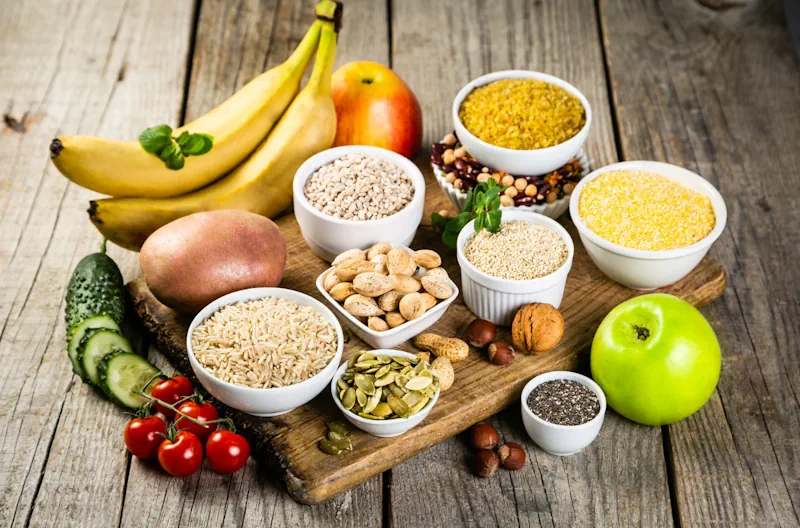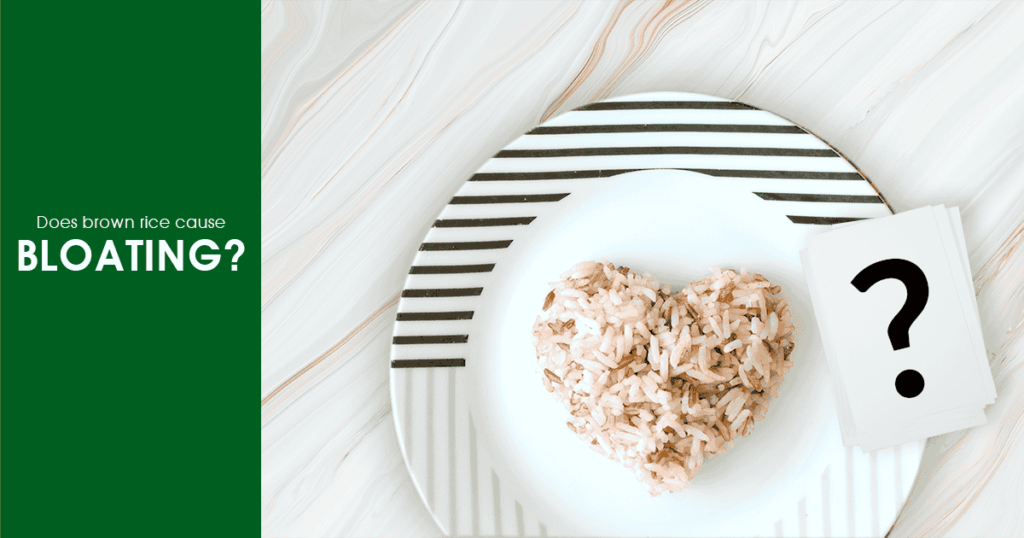Brown rice is often considered a healthy alternative to white rice due to its higher fiber and nutrient content. However, some people experience gas, bloating, or other digestive discomforts after consuming it. If you’ve ever wondered, “Does brown rice cause gas?”, this article explores the reasons behind such symptoms, how to manage them, and whether brown rice is suitable for sensitive digestive systems.
Why Does Brown Rice Cause Gas?
Brown rice contains several compounds that can contribute to gas and bloating. Here’s why it may upset your stomach:
1. High Fiber Content

Brown rice is rich in dietary fiber, especially insoluble fiber, which can be harder for the digestive system to break down.
- How Fiber Affects Digestion:
While fiber is beneficial for gut health, excess fiber can ferment in the colon, producing gas. This is especially true for individuals unaccustomed to a high-fiber diet.
2. Presence of Phytic Acid

Phytic acid, naturally found in brown rice, can interfere with digestion.
- What It Does:
Phytic acid binds to minerals, making them harder to absorb. It can also slow down digestion, potentially leading to gas or bloating.
3. Complex Carbohydrates

Brown rice contains complex carbohydrates, which are more difficult for the digestive system to break down compared to simple carbs.
- Result:
The undigested portions may ferment in the gut, producing gas.
4. Sensitive Stomachs and IBS

For individuals with irritable bowel syndrome (IBS) or other digestive sensitivities, brown rice can exacerbate symptoms like bloating and gas.
- Why It Matters:
Insoluble fiber in brown rice may irritate the gut lining, especially in IBS patients.
Does Brown Rice Make You Bloated?
Yes, brown rice can cause bloating in some individuals. The primary culprits are its fiber content and complex carbohydrates, which can trap gas in the digestive tract.
Can Brown Rice Cause Gas and Bloating?
For those with sensitive digestive systems, brown rice can contribute to both gas and bloating. The symptoms may vary depending on factors like portion size, preparation method, and individual tolerance.
High-Risk Food Pairings:
- Beans
- Cruciferous vegetables (broccoli, cauliflower, cabbage)
Combining these with brown rice increases the fiber load, making bloating more likely.
How Long Does It Take to Digest Brown Rice?
Brown rice takes longer to digest than white rice due to its bran layer, which slows the digestive process. On average, it can take 1-2 hours to digest, though this varies by individual and meal composition.
Is White Rice or Brown Rice Better for Digestion?
If you’re prone to gas and bloating, white rice may be a better option. Here’s why:
White Rice
- Easier to digest
- Contains less fiber
- Ideal for sensitive stomachs or post-surgery diets
Brown Rice
- More nutritious
- Harder to digest due to bran and phytic acid
- May cause gas for some people
If you’re prone to digestive discomfort, white rice may be the better option.
Does Wild Rice Cause Gas?
Wild rice, like brown rice, is a whole grain and can cause gas in sensitive individuals. However, its fiber content is slightly lower, which may make it easier to digest for some people.
Tips to Reduce Gas and Bloating from Brown Rice
If you want to enjoy brown rice without the uncomfortable side effects, try these practical tips:
1. Soak Before Cooking
- Soak brown rice for 6–12 hours.
- This reduces phytic acid and enhances digestibility.
2. Cook Thoroughly
- Well-cooked rice is easier to break down.
- Ensure it’s soft, not chewy.
3. Start with Small Portions
- Gradually introduce brown rice into your diet.
- This gives your gut time to adjust to increased fiber.
4. Use Digestive Enzymes
- Enzyme supplements can help break down carbs.
- Especially helpful for those with enzyme deficiencies.
5. Avoid Pairing with Gas-Producing Foods
- Avoid eating brown rice with beans, lentils, or cruciferous vegetables.
- Choose steamed or sautéed vegetables instead.
6. Stay Hydrated
- Water helps fiber move through the digestive tract.
- Drink throughout the day to avoid constipation and bloating.
Can Brown Rice Cause Gas for IBS Sufferers?
For those with IBS, brown rice may trigger gas or bloating due to its insoluble fiber. Here’s how it affects IBS sufferers:
Better Alternatives:
White rice or other low-fiber grains may be easier to tolerate for individuals with IBS.
Aggravates Symptoms:
Insoluble fiber can irritate the gut lining, leading to discomfort.
Brown Rice vs. Basmati Rice: Which Causes More Bloating?
Basmati rice, especially white basmati, is less likely to cause gas.
Why?
- Lower fiber content
- Easier to digest
- Less irritating for sensitive stomachs
If you love rice but dislike bloating, basmati rice might be a gentler choice.
Remedies for Stomach Discomfort After Eating Brown Rice
If you’re already feeling discomfort, here are simple ways to ease it:
1. Herbal Teas
- Ginger and peppermint tea can relieve bloating and gas.
2. Probiotics
- Add yogurt, kefir, or probiotic supplements to your diet to improve gut balance.
3. Light Physical Activity
- A short walk after meals can help release trapped gas.
4. Don’t Overeat
- Stick to moderate portions.
- Overloading your gut increases fermentation and discomfort.
FAQs: Brown Rice and Digestive Health
Conclusion
While brown rice is a nutritious and fiber-rich food, it can cause gas, bloating, and digestive discomfort in some individuals. These symptoms are often due to its high fiber content, phytic acid, and complex carbohydrates, which may be challenging for the digestive system.
To enjoy the benefits of brown rice without the side effects, consider soaking it before cooking, eating smaller portions, and pairing it with easily digestible foods. If digestive issues persist, switching to white rice or consulting with a healthcare professional may help. By taking these steps, you can incorporate brown rice into your diet while minimizing discomfort.
Disclaimer: The content on Wellness Derive is for informational purposes only and not a substitute for professional medical advice, diagnosis, or treatment. Always consult a healthcare provider for medical concerns.



